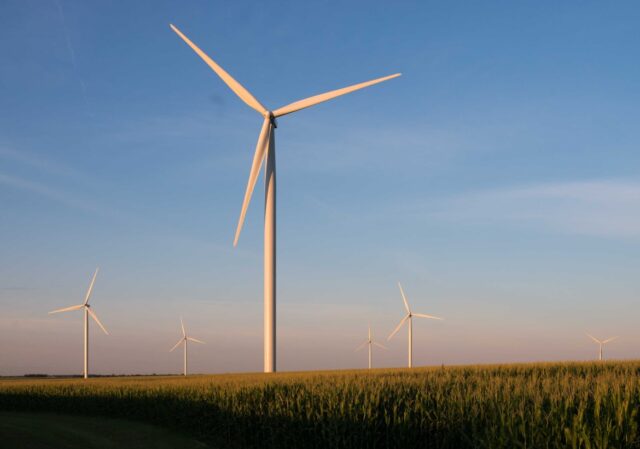From mass cycling to the principle of “buying local”, some European countries can boast of several positive items about caring for the environment. In fact, some capitals (but not only capitals) are working so hard to preserve the natural environment that they fill the headlines in the media all over the world with their god examples.
Options for those who are environmentally conscious are reflected in eco-hotels and “green” hostels tailored to all budgets, while travel agencies are more and more committed to providing sustainable and environmentally conscious options. From free bicycle rental, hybrid taxis, and busy agricultural markets to renewable energy zones, these 5 cities are at the top of the list when it comes to eco-friendly places in Europe…
1. Amsterdam, the Netherlands
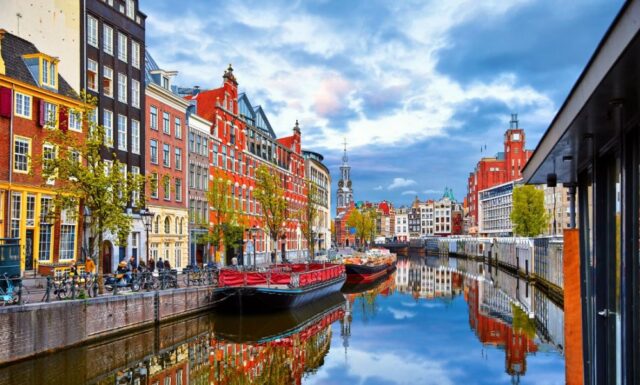
Amsterdam may be better known for its liberal drug policy, relaxed café atmosphere full of curious foreign students, and, recently, laissez-faire online gambling standpoint. Namely, The Netherlands established its regulated online gambling industry on October 1, making the market completely open to online providers and allowing residents to legally place sports bets at bookmakers here and play casino games via the Internet, which used to be prohibited. As you can see, Amsterdam is not the only city in the country where you can indulge in this practice but we thought it was important to add one more advantage of staying in the city.
To get back to the main story – the capital of The Netherlands is much more than a hippie haven. A pioneer in environmental awareness, Amsterdam has largely contributed to innovative energy projects back in 2009, with new plants for electric cars, solar panels, and household wind turbines – and is still working to reduce emissions by 40% by 2025.
Travelers can join the action by enjoying the abundance of local dishes, from freshly baked pastries to homemade herbal teas, or by touring pedal boats along the city’s maze of picturesque canals. Transportation has also received an ecological transformation, so cyclists make up about 75% of traffic, which makes them the most common option for public transportation.
So, avoid the tourist bus and rent a bike if you are in the capital of the ‘Tulip Land’.
2. Malmö, Sweden
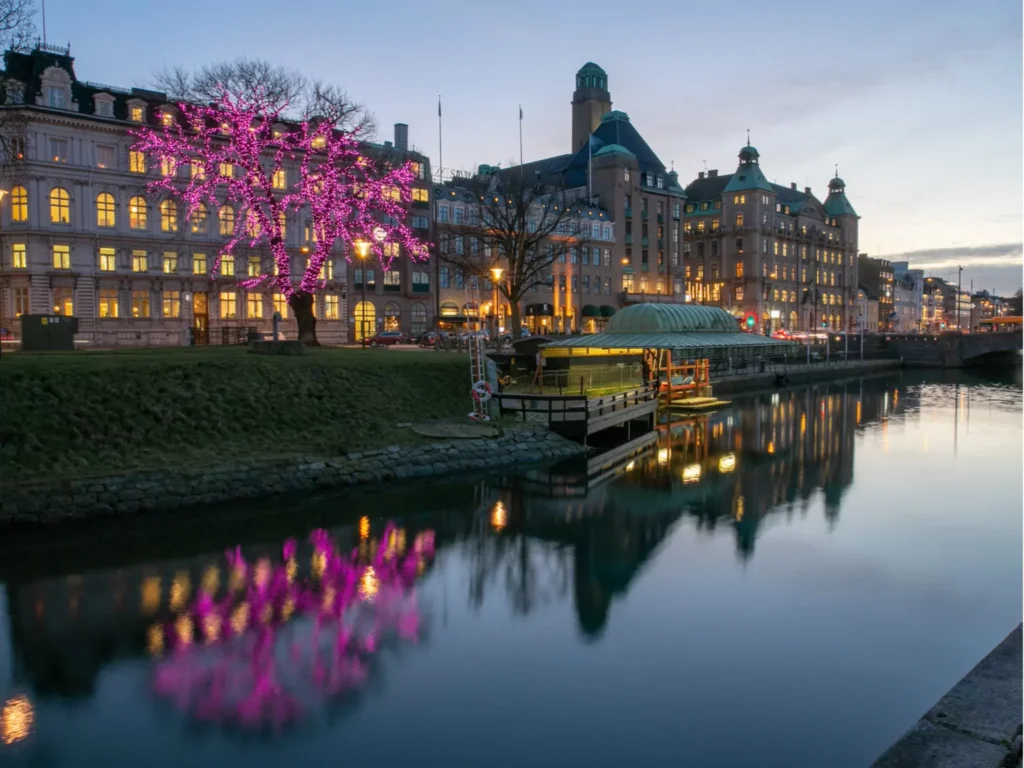
Stockholm may enjoy international attention when we talk about Sweden, but Malmö, the third-largest city in the country, is breaking records in terms of ‘green’ life.
The city is home to the third-largest wind farm in the world, a wide bicycle network, and an impressive amount of parks and green spaces. Most interestingly, Malmö is the center of an innovative new urban development located in the western port of the city – a completely green district with about 10,000 inhabitants and which uses water collection, solar energy, and wind energy to create a zone of 100% renewable energy.
If that is not enough to attract you, this relaxed city boasts a renowned contemporary art scene (with about 50 art galleries in the center) and hosts a favorite to many Malmö Festival (Malmöfestivalen) – eight-day music, art, and theatrical extravagance held during the summer months.
3. Hamburg, Germany
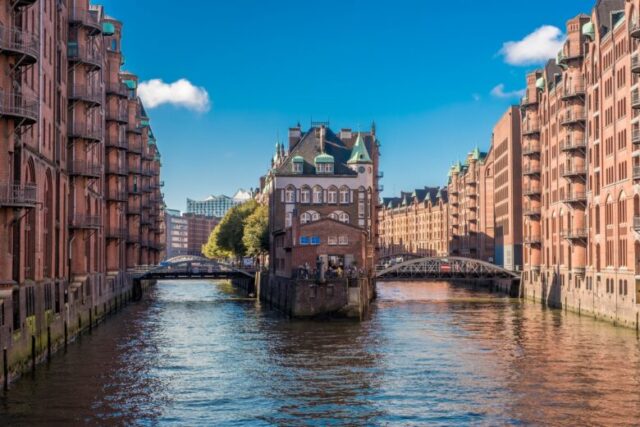
The eco-friendly list would not be complete without Hamburg – the green capital of Europe in 2011. On the banks of the Elbe River, the city is full of greenery that comes from huge public parks and flower gardens to beaches near lakes and shady forests, turning the urban environment into a paradise of natural beauty.
Visitors can take a boat ride along the winding canals, pedal around the city streets, or wander around Hamburg’s fish market – a 300-year-old tradition held every week. Those who want to save a few dollars should pay attention to the city’s “car-free weeks”, which are held several times a year when you can ride the city center with free public transport or take advantage of free bicycle rental.
If you need a faster form of transport, don’t worry, the S-Bahn airport train is fully powered by renewable sources, and over 300 green taxis go through the streets on a daily basis.
4. Zürich, Switzerland
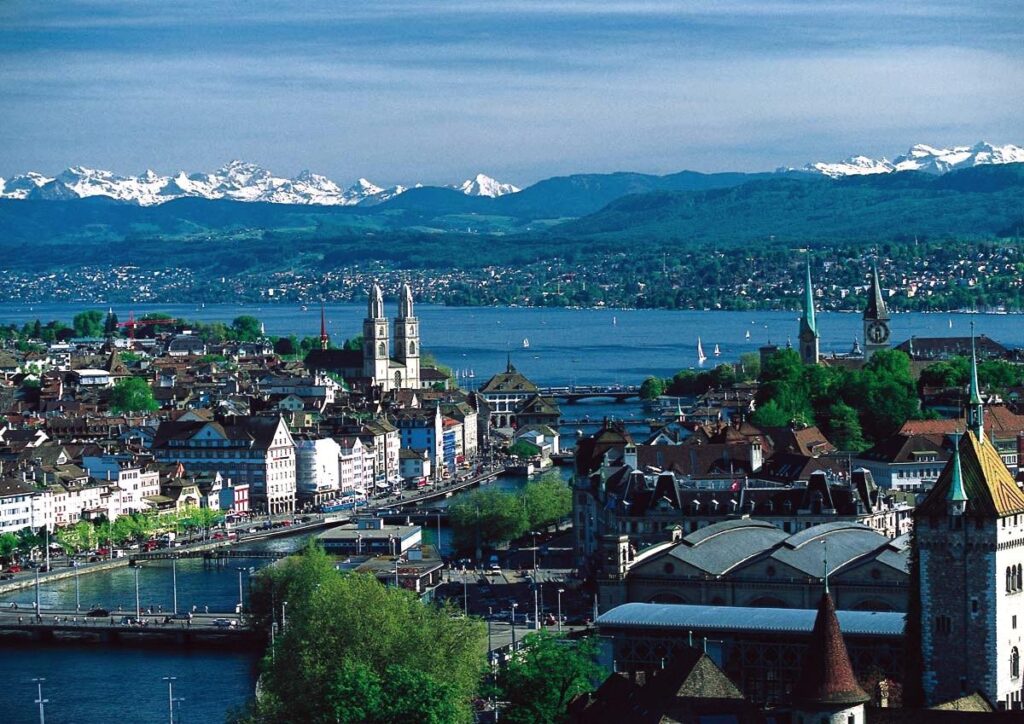
Whether you visit for the snow, breathtaking landscapes, or to stock up on Lindt chocolate, Switzerland has some of Europe’s most magnificent and pristine natural surroundings, as well as a quality of life that is frequently ranked among the best in the world. Zürich is a pretty good starting point if you want to return to nature – you can hike and ski in the nearby Alps, go on a boat trip on Lake Zürich, and walk through a forest full of fauna through which you can ride a bike.
And it is not just the landscape that is impressive – the city’s environmental policies (residents of the city recently voted in a referendum to implement individual CO2 limits) mean that air quality is noticeably above the majority. There are also cyclist-only zones, the rapid development of renewable energy sources, and innovative waste reduction schemes.
Even tourism enters the ‘eco-wagon’ – in addition to walking and cycling tours, visitors can even tour the city on eco-friendly electric scooters.
5. Reykjavík, Iceland
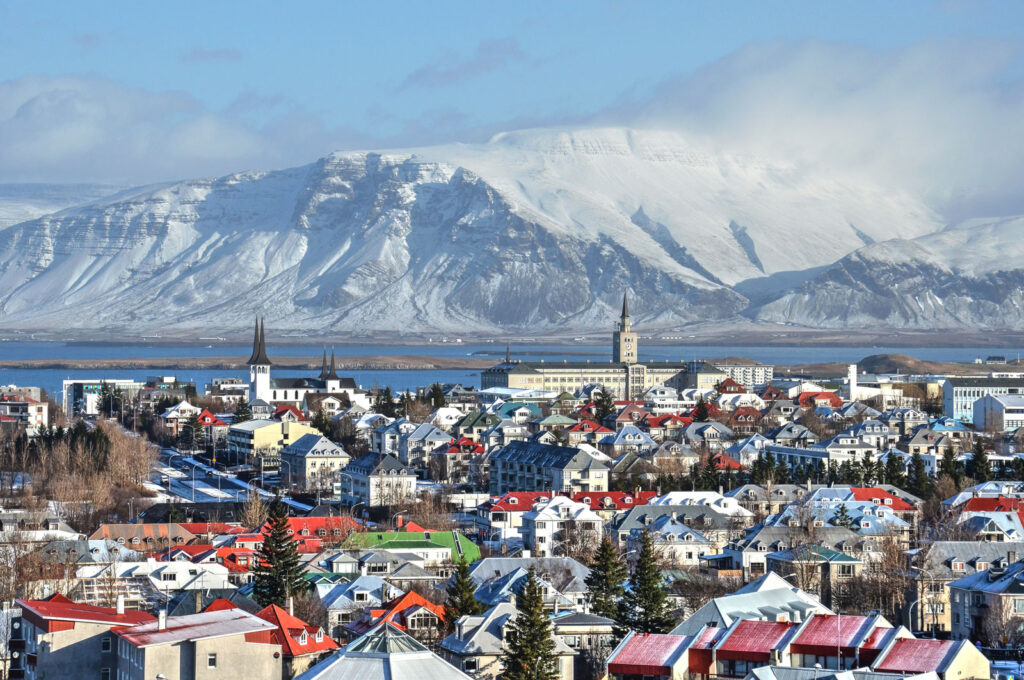
Whether you are at some famous downtown eccentric party or warming up in a geothermal hot spring, Iceland has many environmentally friendly options at its disposal.
The country makes good use of its rich geothermal activity, exploiting the natural heat source for most of its electricity needs, making it one of the most energy-efficient destinations in Europe, where hydrogen buses even run city routes. In fact, Reykjavík is so loyal to the green credentials that the officials have pledged to make it a fossil-free city by 2050, with the goal of gaining the title of the cleanest city in Europe.
For a city so focused on cleanliness and environmental awareness, you would be forgiven if you thought Reykjavík was boring, but the reality is far from it – the capital of Iceland is a hive of modern bars, restaurants, and art galleries, not to mention its stunning background of sulfur-emitting volcanoes and an ocean full of dolphins.

